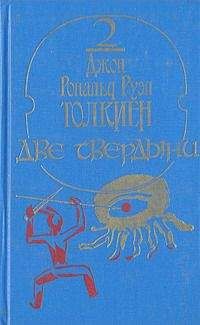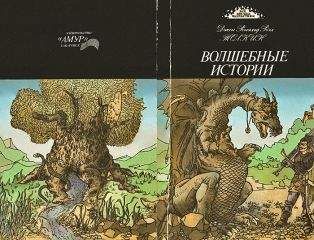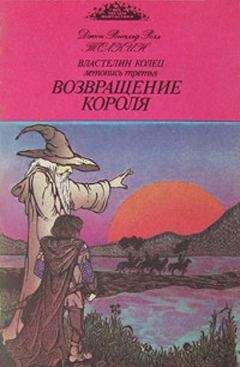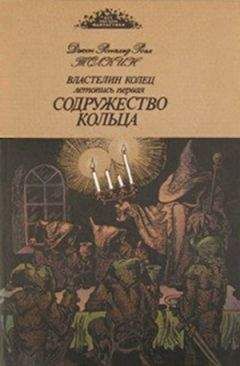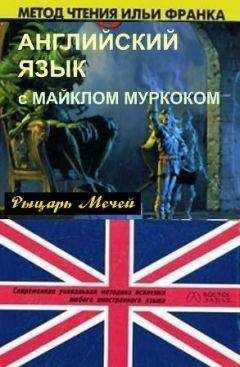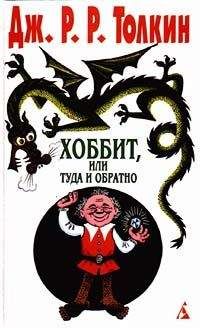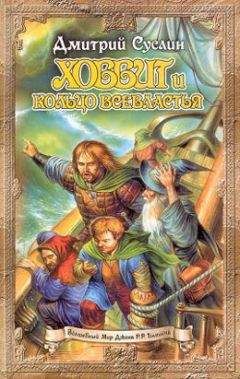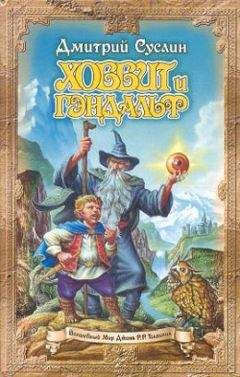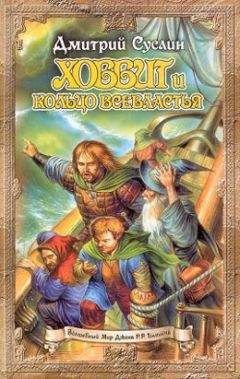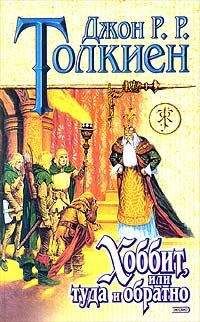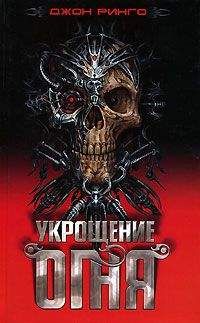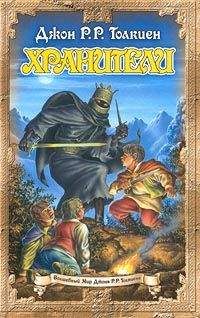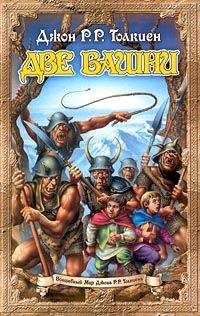Джон Толкиен - Английский язык с Дж. Р. Р. Толкиеном. Хоббит
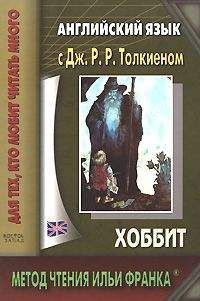
Все авторские права соблюдены. Напишите нам, если Вы не согласны.
Описание книги "Английский язык с Дж. Р. Р. Толкиеном. Хоббит"
Описание и краткое содержание "Английский язык с Дж. Р. Р. Толкиеном. Хоббит" читать бесплатно онлайн.
В книге предлагается произведение на английском языке Джона Р. Р. Толкиена «Хоббит», адаптированное (без упрощения текста оригинала) по методу Ильи Франка. Уникальность метода заключается в том, что запоминание слов и выражений происходит за счет их повторяемости, без заучивания и необходимости использовать словарь.
Пособие способствует эффективному освоению языка, может служить дополнением к учебной программе.
Предназначено для студентов, для изучающих английский язык самостоятельно, а также для всех интересующихся английской культурой.
Пособие подготовила Ольга Ламонова.
They had not been riding very long (они скакали не очень долго) when up came Gandalf (когда /их/ нагнал Гэндальф) very splendid on a white horse (/очень/ великолепный на белом коне). He had brought a lot of pocket — handkerchiefs (он привез кучу носовых платков), and Bilbo’s pipe and tobacco (и трубку, и табак Бильбо). So after that (итак, после этого) the party went along very merrily (группа продолжила путь очень весело), and they told stories (и они рассказывали истории) or sang songs (или пели песни) as they rode forward all day (пока они ехали вперед весь день), except of course when they stopped for meals (за исключением, конечно же, когда они останавливались для принятия пищи).
weather-stained [ˈweðǝsteɪnd] mistaken [mɪˈsteɪkǝn] merrily [ˈmerɪlɪ]
That’s how they all came to start, jogging off from the inn one fine morning just before May, on laden ponies; and Bilbo was wearing a dark-green hood (a little weather-stained) and a dark-green cloak borrowed from Dwalin. They were too large for him, and he looked rather comic. What his father Bungo would have thought of him, I daren’t think. His only comfort was he couldn’t be mistaken for a dwarf, as he had no beard.
They had not been riding very long when up came Gandalf very splendid on a white horse. He had brought a lot of pocket-handkerchiefs, and Bilbo’s pipe and tobacco. So after that the party went along very merrily, and they told stories or sang songs as they rode forward all day, except of course when they stopped for meals.
These didn’t come quite as often (это случалось не так часто; to come — идти, приходить, наступать) as Bilbo would have liked them (как того хотелось бы Бильбо), but still he began to feel (но, все равно, он начинал чувствовать) that adventures were not so bad after all (что приключения были не так уж и плохи, в конце-то концов).
At first they had passed through hobbit-lands (сначала они проехали через земли хоббитов), a wide respectable country (просторную респектабельную страну) inhabited by decent folk (населенную порядочным народом), with good roads (с хорошими дорогами), an inn or two (одной или двумя тавернами), and now and then (и время от времени) a dwarf or a farmer (/они видели/ гнома или фермера) ambling by on business (семенящего по своим делам; to amble — идти иноходью; идти легким шагом). Then they came to lands (затем они приехали в земли) where people spoke strangely (где люди говорили странно), and sang songs Bilbo had never heard before (и пели песни, которые Бильбо никогда раньше не слышал). Now they had gone on (теперь они заехали) far into the Lone-lands (глубоко в Заброшенные Земли), where there were no people left (где не осталось ни людей), no inns (ни таверн), and the roads grew steadily worse (и дороги становились постепенно все хуже; to grow (grew, grown) — расти, увеличиваться; зд. как глагол-связка в составном именном сказуемом — делаться). Not far ahead were dreary hills (не далеко впереди были мрачные холмы), rising higher and higher (поднимающиеся все выше и выше), dark with trees (темные от /растущих на них/ деревьев). On some of them were old castles (на некоторых из них были старые замки) with an evil look (с зловещим видом), as if they had been built by wicked people (словно были они построены дурными людьми). Everything seemed gloomy (все казалось мрачным), for the weather that day (так как погода в тот день) had taken a nasty turn (испортилась: «приняла отвратительный оборот»).
respectable [rɪˈspektǝb (ǝ) l] inhabited [ɪnˈhæbɪtɪd] castle [ˈkɑ: s (ǝ) l]
These didn’t come quite as often as Bilbo would have liked them, but still he began to feel that adventures were not so bad after all.
At first they had passed through hobbit-lands, a wide respectable country inhabited by decent folk, with good roads, an inn or two, and now and then a dwarf or a farmer ambling by on business. Then they came to lands where people spoke strangely, and sang songs Bilbo had never heard before. Now they had gone on far into the Lone-lands, where there were no people left, no inns, and the roads grew steadily worse. Not far ahead were dreary hills, rising higher and higher, dark with trees. On some of them were old castles with an evil look, as if they had been built by wicked people. Everything seemed gloomy, for the weather that day had taken a nasty turn.
Mostly it had been (по большей части /погода/ была) as good as May can be (такой хорошей, какой она может быть в мае), even in merry tales (даже в веселых историях), but now it was cold and wet (но теперь она была холодной и сырой; wet — мокрый; дождливый). In the Lone-lands they had to camp when they could (в Заброшенных Землях им пришлось ночевать, где придется: «где они могли»), but at least it had been dry (но, по меньшей мере, было сухо).
“To think it will soon be June (подумать только, что скоро июнь), ” grumbled Bilbo (ворчал Бильбо) as he splashed along (в то время как он шлепал; to splash — брызгать, плескать) behind the others (позади всех остальных) in a very muddy track (по очень грязной колее; track — след, курс, путь). It was after tea — time (время вечернего чая уже прошло); it was pouring with rain (дождь лил как из ведра), and had been all day (и лил он весь день); his hood was dripping into his eyes (с его капюшона капало прямо в его глаза), his cloak was full of water (его плащ был полон воды); the pony was tired (его пони устал) and stumbled on stones (и спотыкался о камни); the others were too grumpy to talk (остальные были слишком сердиты, чтобы разговаривать). “And I’m sure (и я уверен, что) the rain has got into the dry clothes (что дождь попал и в сухую одежду) and into the food-bags (и в сумки с провизией), ” thought Bilbo (думал Бильбо). “Bother burgling and everything to do with it (к черту /это ремесло/ взломщика и все что с ним связано)! I wish I was at home (как бы я хотел быть дома) in my nice hole by the fire (в моей милой норе, у огня), with the kettle just beginning to sing (и чайник только начинал бы закипать: «петь»)!” It was not the last time (и это был не последний раз) that he wished that (когда он пожелал этого)!
splash [splæʃ] pouring [ˈpɔ: rɪŋ] stumble [ˈstʌmb (ǝ) l] grumpy [ˈɡrʌmpɪ]
Mostly it had been as good as May can be, even in merry tales, but now it was cold and wet. In the Lone-lands they had to camp when they could, but at least it had been dry.
“To think it will soon be June, ” grumbled Bilbo as he splashed along behind the others in a very muddy track. It was after tea-time; it was pouring with rain, and had been all day; his hood was dripping into his eyes, his cloak was full of water; the pony was tired and stumbled on stones; the others were too grumpy to talk. “And I’m sure the rain has got into the dry clothes and into the food-bags, ” thought Bilbo. “Bother burgling and everything to do with it! I wish I was at home in my nice hole by the fire, with the kettle just beginning to sing!” It was not the last time that he wished that!
Still the dwarves jogged on (все же гномы продолжали скакать), never turning round (никогда не оборачиваясь) or taking any notice of the hobbit (и не обращая никакого внимания на хоббита). Somewhere behind the grey clouds (где-то, за серыми тучами) the sun must have gone down (солнце, должно быть, село), for it began to get dark (так как начинало темнеть). Wind got up (поднялся ветер), and the willows along the river-bank (и ивы, /растущие/ вдоль берега реки) bent and sighed (гнулись и шелестели; to sigh — вздыхать, тосковать). I don’t know what river it was (я не знаю, что за речка это была), a rushing red one (какая-то бурная красная река; rushing — стремительный, порывистый), swollen with the rains of the last few days (вздувшаяся от дождей последних нескольких дней), that came down from the hills and mountains (которая спускалась с холмов и гор) in front of them (перед ними). Soon it was nearly dark (вскоре стало уже почти темно). The winds broke up the grey clouds (ветер разогнал серые тучи; to break (broke, broken) — ломать, разрывать), and a waning moon (и ущербная луна; to wane — убывать, быть на ущербе /о Луне/) appeared above the hills (появилась над холмами) between the flying rags (между летящими по небу клочками /облаков/).
jog [dʒɔɡ] notice [ˈnǝʋtɪs] appear [ǝˈpɪǝ]
Still the dwarves jogged on, never turning round or taking any notice of the hobbit. Somewhere behind the grey clouds the sun must have gone down, for it began to get dark. Wind got up, and the willows along the river-bank bent and sighed. I don’t know what river it was, a rushing red one, swollen with the rains of the last few days, that came down from the hills and mountains in front of them. Soon it was nearly dark. The winds broke up the grey clouds, and a waning moon appeared above the hills between the flying rags.
Then they stopped (тогда они остановились), and Thorin muttered something about supper (и Торин пробормотал что-то об ужине), “and where shall we get a dry patch to sleep on (и где бы нам достать сухой клочок /земли/ на котором поспать)?” Not until then (и только тогда: «не до тех пор») did they notice (они обратили внимание) that Gandalf was missing (что Гэндальфа с ними не было; to miss — зд. недоставать, отсутствовать). So far (до этого) he had come all the way with them (он проехал весь путь вместе с ними), never saying (не говоря) if he was in the adventure (был ли он /вместе с ними/ в этом приключении) or merely keeping them company for a while (или просто составлял им компанию на некоторое время). He had eaten most (он ел больше всех), talked most (разговаривал больше всех), and laughed most (и смеялся больше всех). But now he simply was not there at all (но теперь его попросту не было, совсем)!
“Just when (как раз в тот момент, когда) a wizard would have been most useful (волшебник был бы как нельзя кстати; useful — полезный, пригодный), too (к тому же), ” groaned Dori and Nori (простонали Дори и Нори) (who shared the hobbit’s views about regular meals (которые разделяли взгляды хоббита на регулярные приемы пищи), plenty and often (обильные и частые)). They decided in the end (они решили наконец) that they would have to camp (что им придется разбить лагерь) where they were (там, где они /как раз/ находились).
laugh [lɑ: f] useful [ˈju: sf (ǝ) l] shared [ʃeǝd] regular [ˈreɡjʋlǝ]
Then they stopped, and Thorin muttered something about supper, “and where shall we get a dry patch to sleep on?” Not until then did they notice that Gandalf was missing. So far he had come all the way with them, never saying if he was in the adventure or merely keeping them company for a while. He had eaten most, talked most, and laughed most. But now he simply was not there at all!
“Just when a wizard would have been most useful, too, ” groaned Dori and Nori (who shared the hobbit’s views about regular meals, plenty and often). They decided in the end that they would have to camp where they were.
So far (до сих пор) they had not camped before on this journey (они еще не разбивали лагеря в этом путешествии), and though they knew (и, хотя они и знали) that they soon would have to camp regularly (что скоро им придется разбивать лагерь регулярно), when they were among the Misty Mountains (когда они окажутся в Мглистых Горах) and far from the lands of respectable people (и далеко от земель порядочных людей), it seemed a bad wet evening to begin on (этот вечер казался плохим и сырым для начала /устройства лагеря/). They moved to a clump of trees (они подвинулись к рощице /деревьев/; clump — заросли; слипшаяся масса; глыба, ком), and though it was drier under them (и хотя под ними было суше), the wind shook the rain off the leaves (ветер стряхивал /капли/ дождя с листьев), and the drip, drip, was most annoying (и шум падающих капель: «кап-кап» был очень раздражающим; to annoy — досаждать; докучать, надоедать, раздражать). Also the mischief seemed to have got into the fire (также казалось, что какая-то беда случилась с огнем; mischief — вред, зло; озорство). Dwarves can make a fire almost anywhere (гномы могут развести огонь почти что везде) out of almost anything (почти что из всего), wind or no wind (/не зависимо от того/ дует ветер или нет); but they could not do it that night (но они не могли развести его той ночью), not even Oin and Gloin (даже Ойн и Глойн не могли), who were specially good at it (которые были особенно хороши по этой части: «в этом»).
Подписывайтесь на наши страницы в социальных сетях.
Будьте в курсе последних книжных новинок, комментируйте, обсуждайте. Мы ждём Вас!
Похожие книги на "Английский язык с Дж. Р. Р. Толкиеном. Хоббит"
Книги похожие на "Английский язык с Дж. Р. Р. Толкиеном. Хоббит" читать онлайн или скачать бесплатно полные версии.
Мы рекомендуем Вам зарегистрироваться либо войти на сайт под своим именем.
Отзывы о "Джон Толкиен - Английский язык с Дж. Р. Р. Толкиеном. Хоббит"
Отзывы читателей о книге "Английский язык с Дж. Р. Р. Толкиеном. Хоббит", комментарии и мнения людей о произведении.






